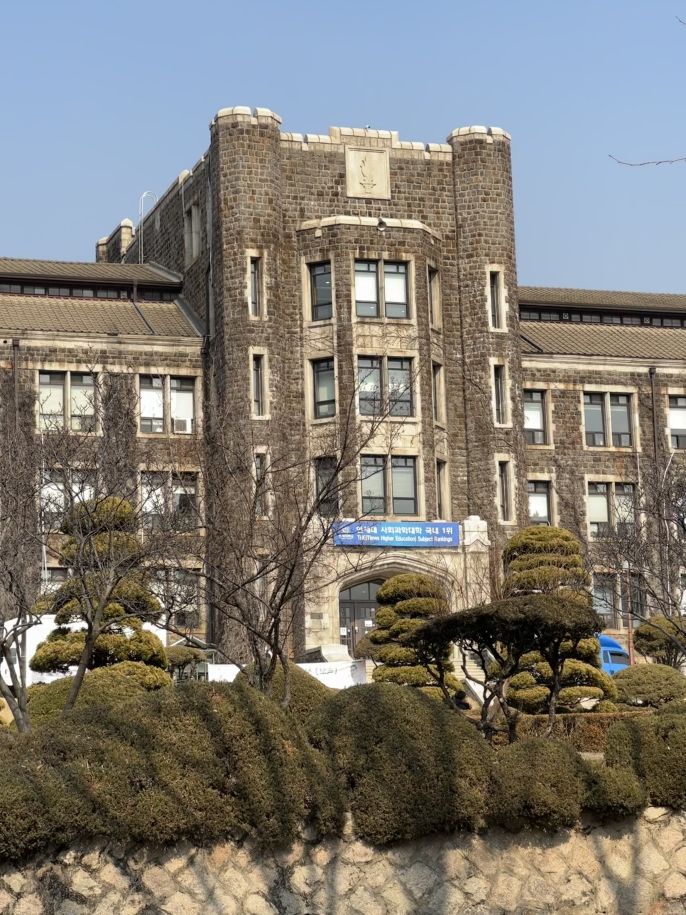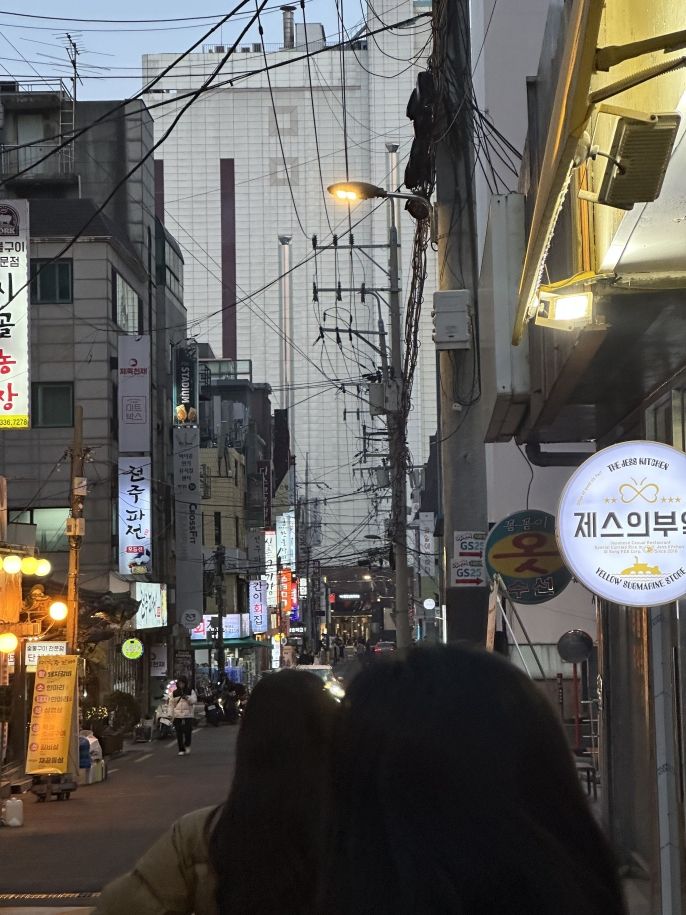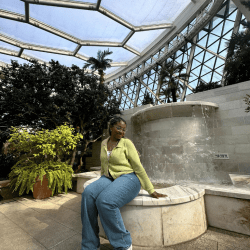Here’s what I’ve learned in 3 weeks studying abroad in South Korea: Sharing 5 tips for navigating your study abroad experience!
- Try doing things alone
- Acclimating to a new culture and society can be very overwhelming physically and mentally. During my first weeks here, I found myself signing up for every CIEE activity and exploring ALL of Seoul every day with groups of people. Exploring Seoul in big groups was a bit challenging because everyone had their own agenda and interest. Some people had a set destination whereas I just preferred to wander around with no final destination in mind. I found myself being rushed and felt the pressure to move along in cooperation with the group’s pace. I felt the need to do things in groups because I was afraid of being alone, but I realized that being able to do things alone will allow me to do things at a pace most comfortable to me, navigate South Korean society without relying on anyone, and take in the culture and experience of being in South Korea. So even though it appeared scary and intimidating, I am getting more comfortable acclimating to South Korean society on my own.
- Be comfortable with being uncomfortable
- The experience of studying abroad revolves around actions of stepping outside of your comfort zone and making decisions that you wouldn't normally make. Being able to step outside of your comfort zone will allow you to make the most of your experience whether that be in South Korea or wherever your study abroad journey takes you. Taking that extra step will enable you to be fully immersed in the society and culture of the host country. For me, choosing to study abroad in South Korea was a decision that I made knowing it would push me outside of my comfort zone; Being away from family and friends, learning how to navigate a society while only knowing the basics of Korean, stepping into a homogenous society while being Black, where all concerns I had about my studying abroad experience. However, by being open-minded and knowing that this experience will ultimately challenge me in ways that will benefit my development as a human being, allowed me to recognize that stepping outside my comfort zone only encourages me to embark on new experiences, learn new skills, and meet new people!
- In Korea speak Korean (even if all you know is the basics)!!
- Before arriving in South Korea, I had only one semester of learning Korean. However, the Korean I learned was the academic version of Korean, not the colloquial everyday casual Korean, which I hope to learn while studying here. There are times when I get nervous and don't want to speak Korean because I am afraid that 1) it's not good enough 2) I might mix up the order of words when trying to formulate a sentence and 3) can't decide between using honorifics or informal endings. But mostly, I am simply embarrassed about the level of Korean I have. But, after being here for about 3 weeks, I have recognized how kind and patient locals are in understanding the variability of foreigners' speaking skills. In my experience, local Koreans don't get mad, they often take pride that I as a foreigner have some proficiency in their native tongue. But I also realized that when learning a language, you are bound to make mistakes and that's okay! Making mistakes, laughing at myself, and being embarrassed are all part of the experience of learning a new language. Going forward with this mindset, I am less concerned about the accuracy of my Korean and instead will utilize Korean in every chance I have during my semester here!
- Take time to recuperate
- During my first week in Korea, my days were really filled with activities; At the beginning of my day, I attended CIEE’s orientation and following the orientation, I would hang out with friends, exploring the cities around Sinchon. By the time I got back to my room, I felt overwhelmed and unprepared for the following day's plans. The following day, I felt tired and impatient, in addition to coping with the effects of jetlag. Now going forward, I have started to practice the act of saying no to any plans where I feel it may have an impact on my physical and mental well-being. Taking the time to recuperate has allowed me to revitalize my body, have better moods, and have a balance between life and schoolwork. But most importantly, I realized that I have 4 months to explore South Korea to the fullest, therefore there is no need to rush through the process.
- Experience Korea without trying to compare it to your native country
- Even though it may be extremely challenging, try to take in and experience Korea as it presents itself to you. In other words, try to perceive Korea on a base of neutrality. This may seem very hard seeing that you may want to make comparisons based on your home country but if you take into consideration how culturally different each place is, it’ll allow you to see things from a different perspective and lens. Things in Korea that may seem odd or weird to you, are normal to Koreans whereas, in my instance, things that are normal in the US may seem unusual and weird to Koreans. Here are a few cultural practices in Korea that I have observed so far; Koreans don't hold doors, customers in restaurants don't wait for waiters, they shout out 저기요 “cho-gi-yo”, there’s no tipping in Korean restaurants, the motorcycles are everywhere and while you walk, one may drive beside you (so be on the lookout!!), and there are so many more experiences that are uniquely specific to the Korean culture. Even though it is different from the culture I have grown up in, I place no judgment because I chose to study abroad in South Korea to learn about the day-to-day life of a Korean. Therefore, using American culture as a way to make comparisons will prohibit the ways in which I will experience and perceive Korean society and culture.
Related Posts
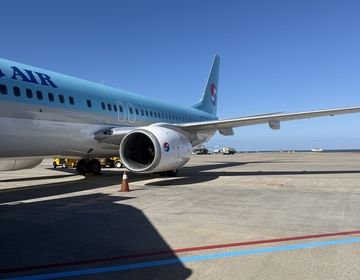
Soul Searching in Seoul: Everything I Learned and What I Wish I Knew
Before I start crafting my “study abroad changed me” answers for friends and family, here are the practical things I wish I’d known. The things that would’ve saved me time... keep reading
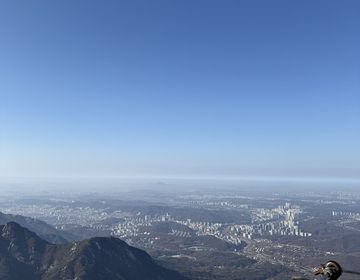
A Seoul Escape to Bukhansan
Get out of the hustle and bustle of Seoul and head to the peak of Bukhansan!
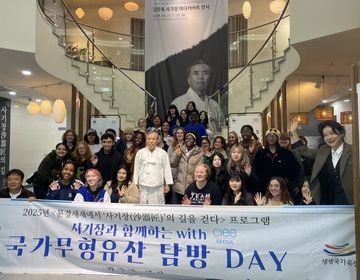
From CIEE
My Time in South Korea Attending Yonsei University: A Life-Changing Chapter
By: Zahrraa Al-Salman Studying abroad had always been a dream of mine—an opportunity to step outside of my comfort zone, immerse myself in a new culture, and deepen my understanding... keep reading
